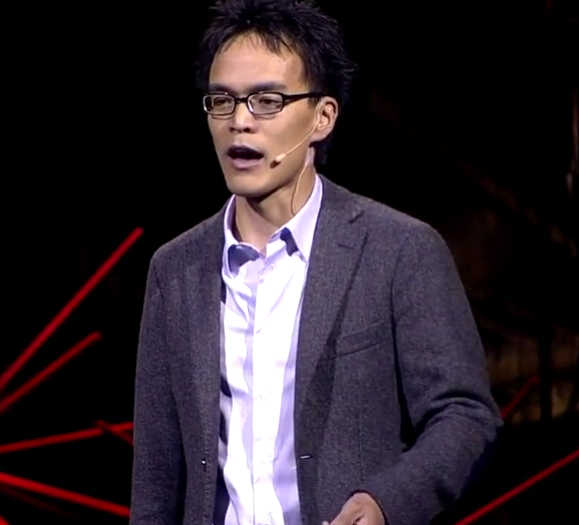(单词翻译:单击)
演讲文本
Now how can we think about health behaviors to think about savings?
我们能将健康相关的行为比作储蓄行为么?
Well, think about smoking, for example. Smoking is in some deep sense negative savings.
例如,吸烟这个事情,吸烟可以看作反向的储蓄。
If savings is current pain in exchange for future pleasure, smoking is just the opposite.
如果储蓄是增加当下的痛苦增加未来的快感,那么吸烟的效果正好相反。
It's current pleasure in exchange for future pain.
吸烟用未来的痛苦换取当下的快感。
What we should expect then is the opposite effect.
我们假设吸烟跟语言时态的关系应该跟储蓄的关系相反。
And that's exactly what we find.
我们的统计支持了我们的推断。

Futureless language speakers are 20 to 24 percent less likely
语言没有区分将来时态的家庭成员相比而言
to be smoking at any given point in time compared to identical families,
在任何时间段中吸烟的可能性相比都要少20%到24%,
and they're going to be 13 to 17 percent less likely to be obese by the time they retire,
在他们退休的时候超重的可能性相比少13%到17%,
and they're going to report being 21 percent more likely to have used a condom in their last sexual encounter.
在最后一次性行为中使用安全套的概率要高21%。
I could go on and on with the list of differences that you can find.
我可以这么一直不停地列举下去。
It's almost impossible not to find a savings behavior for which this strong effect isn't present.
很难找到语言时态特征对于储蓄行为没有影响的实例。
My linguistics and economics colleagues at Yale and I are just starting to do this work
我和在耶鲁的的语言学同事和经济学同事刚刚开始这项研究,
and really explore and understand the ways that these subtle nudges
探索和理解每次我们说话的时候
cause us to think more or less about the future every single time we speak.
(语言)对于我们的未来的轻微的影响。
Ultimately, the goal, once we understand how these subtle effects can change our decision making,
最终的目标是,一旦我们理解了这些微妙的效果是如何影响到我们的决策的,
we want to be able to provide people tools so that they can consciously make themselves better savers
我们希望可以为人们提供更好的工具,让他们在未来
and more conscious investors in their own future. Thank you very much.
理性的存钱,理性的投资。非常感谢。
视频及简介
演讲简介:
经济学家能从语言学家那里学到什么?行为经济学家基思·陈介绍了他的研究中发现的奇妙关联:没有区分将来时态的语言——“明天下雨”而不是“下明天的雨”——跟储蓄比例有很强的相关性。


